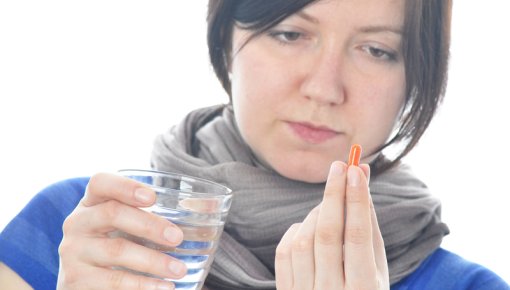Bundesinstitut für Arzneimittel und Medizinprodukte (BfArM). Antidepressiva: Wissenschaftliche Neubewertung der SSRI/SNRI abgeschlossen - Neue Warnhinweise auf suizidales Verhalten bei Kindern und Jugendlichen. 2005.
Bundesinstitut für Arzneimittel und Medizinprodukte (BfArM). Drospirenonhaltige orale Kontrazeptiva (z.B. Yasmin®) – Aktualisierung der Produktinformationen zum Risiko venöser Thromboembolien. 2011.
Busse JW, Montori VM, Krasnik C et al. Psychological intervention for premenstrual syndrome: a meta-analysis of randomized controlled trials. Psychother Psychosom 2009; 78(1): 6-15.
Canning S, Waterman M, Dye L. Dietary supplements and herbal remedies for premenstrual syndrome (PMS): a systematic research review of the evidence for their efficacy. J Reprod Infant Psychol 2006; 24(4): 363-378.
Cho SH, Kim J. Efficacy of acupuncture in management of premenstrual syndrome: a systematic review. Complement Ther Med 2010; 18(2): 104-111.
Dante G, Facchinetti F. Herbal treatments for alleviating premenstrual symptoms: a systematic review. J Psychosom Obstet Gynaecol 2011; 32(1): 42-51.
European Medicines Agency (EMA). Ethinylestradiol + drospirenone-containing oral contraceptives (YASMIN, YASMINELLE and other products) - Risk of venous thromboembolism. 2011.
Ford O, Lethaby A, Roberts H et al. Progesterone for premenstrual syndrome. Cochrane Database Syst Rev 2012; (3): CD003415.
Hausenblas HA, Heekin K, Mutchie HL et al. A systematic review of randomized controlled trials examining the effectiveness of saffron (Crocus sativus L.) on psychological and behavioral outcomes. J Integr Med 2015; 13(4): 231-240.
Kleinstäuber M, Witthöft M, Hiller W. Cognitive-behavioral and pharmacological interventions for premenstrual syndrome or premenstrual dysphoric disorder: a meta-analysis. J Clin Psychol Med Settings 2012; 19(3): 308-319.
Kwan I, Onwude JL. Premenstrual syndrome. BMJ Clin Evid 2015: 0806.
Lawrie TA, Helmerhorst FM, Maitra NK et al. Types of progestogens in combined oral contraception: effectiveness and side-effects. Cochrane Database Syst Rev 2011; (5): CD004861.
Lopez LM, Kaptein AA, Helmerhorst FM. Oral contraceptives containing drospirenone for premenstrual syndrome. Cochrane Database Syst Rev 2012; (2): CD006586.
Marjoribanks J, Brown J, O'Brien PM et al. Selective serotonin reuptake inhibitors for premenstrual syndrome. Cochrane Database Syst Rev 2013; (6): CD001396.
Pearce E, Jolly K, Jones LL et al. Exercise for premenstrual syndrome: a systematic review and meta-analysis of randomised controlled trials. BJGP Open 2020; 4(3): 20X101032.
Van Die MD, Burger HG, Teede HJ et al. Vitex agnus-castus extracts for female reproductive disorders: a systematic review of clinical trials. Planta Med 2013; 79(7): 562-575.
IQWiG health information is written with the aim of helping people understand the advantages and disadvantages of the main treatment options and health care services.
Because IQWiG is a German institute, some of the information provided here is specific to the German health care system. The suitability of any of the described options in an individual case can be determined by talking to a doctor. informedhealth.org can provide support for talks with doctors and other medical professionals, but cannot replace them. We do not offer individual consultations.
Our information is based on the results of good-quality studies. It is written by a team of health care professionals, scientists and editors, and reviewed by external experts. You can find a detailed description of how our health information is produced and updated in our methods.

